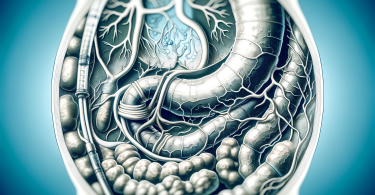 If you catch a cold, you can expect to be sick for one to two weeks. These remedies may help:
If you catch a cold, you can expect to be sick for one to two weeks. These remedies may help:
Water and other fluids. You can’t flush a cold out of your system, but drinking plenty of liquids can help. Water, juice, clear broth or warm lemon water with honey helps loosen congestion and prevents dehydration. Avoid alcohol, coffee and caffeinated sodas, which make dehydration worse.
Salt water. A saltwater gargle — 1/4 to 1/2 teaspoon salt dissolved in an 8-ounce glass of warm water — can temporarily relieve a sore or scratchy throat.
Saline nasal drops and sprays. Over-the-counter saline nasal drops and sprays combat stuffiness and congestion. Unlike nasal decongestants, saline drops and sprays don’t lead to a rebound effect — a worsening of symptoms when the medication is discontinued — and most are safe and nonirritating, even for children.
Zinc. A comprehensive analysis of clinical-trial data on zinc and colds has concluded that zinc really does appear to be beneficial. The conclusion comes with a few caveats. Researchers haven’t determined the most effective formulation, dose or duration of zinc treatment for colds. Zinc lozenges can leave a bad taste in your mouth, and some trial participants reported nausea as a side effect of the lozenges. Zinc-based nasal sprays, not included in the recent, positive analysis, pose a different problem; the Food and Drug Administration (FDA) warns that these products can take away your sense of smell, possibly for good.
Chicken soup. Chicken soup may be soothing because of its possible anti-inflammatory and mucus-thinning effects.
Over-the-counter cold and cough medications in older children and adults. Nonprescription decongestants and pain relievers offer some symptom relief, but they won’t prevent a cold or shorten its duration, and most have some side effects. If used for more than a few days, they can actually make symptoms worse. Keep in mind that acetaminophen (Tylenol and others) can cause serious liver damage or liver failure if taken in doses higher than recommended. It’s common for people to take Tylenol in addition to flu medications that also contain acetaminophen, which can lead to acetaminophen overdoses. Read the labels of any cold medication carefully to make sure you’re not overdosing. If a cough lasts after your other cold symptoms have resolved, see your doctor. In the meantime, try soothing your throat with warm lemon water and honey and humidifying the air in your house. Avoid giving honey to infants.
Antihistamines. First-generation (sedating) antihistamines may provide minor relief of several cold symptoms, including cough, sneezing, watery eyes and nasal discharge..
Humidity. Cold viruses thrive in dry conditions — another reason why colds are more common in winter. Dry air also dries the mucous membranes, causing a stuffy nose and scratchy throat. A humidifier can add moisture to your home, but it can also add mold, fungi and bacteria if not cleaned properly. Change the water in your humidifier daily, and clean the unit according to the manufacturer’s instructions.
Vitamin C. It appears that for the most part taking vitamin C won’t help the average person prevent colds. However, taking vitamin C before the onset of cold symptoms may shorten the duration of symptoms.
Echinacea. Studies on the effectiveness of echinacea at preventing or shortening colds are mixed. Some studies show no benefit. Others show a significant reduction in the severity and duration of cold symptoms when taken in the early stages of a cold. If your immune system is healthy and you are not taking prescription medications, using echinacea supplements is unlikely to cause harm.
The best thing you can do is stay at home en rest for a few days. This is going to be good for your and for you and for the people around you, because colds are caused by viruses that are very contagious.
Source: Mayo Clinic






